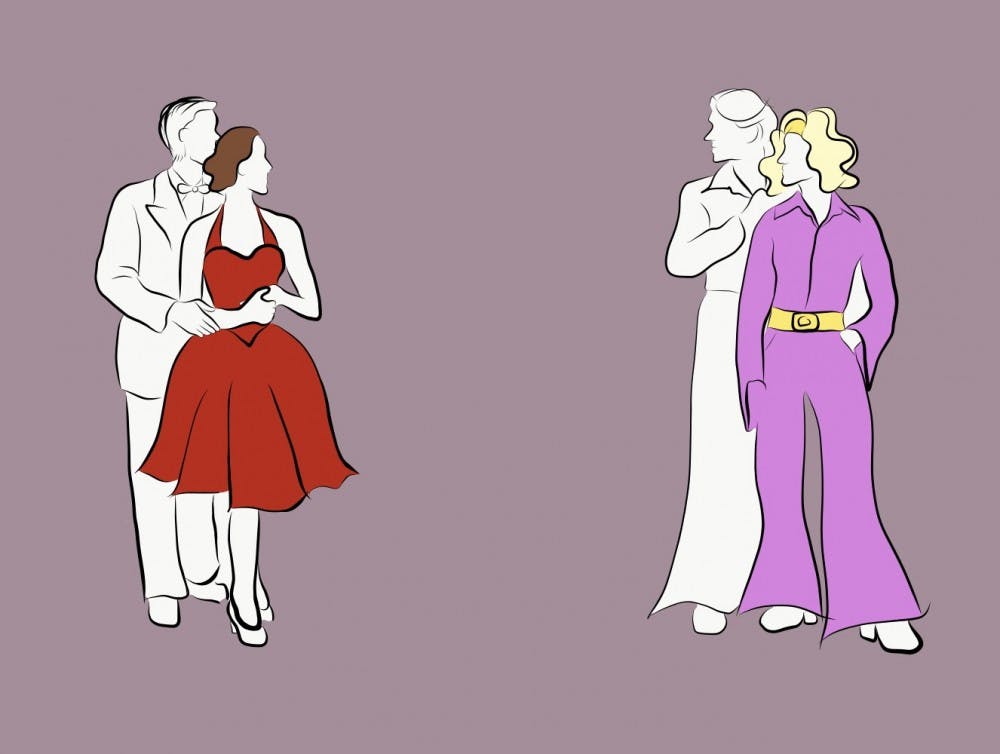Every college student has experienced this: You are scrolling through Facebook and happen upon an article telling you all the ways your generation is leading to the demise of American values.
Millenials get blamed for a lot of America’s problems, even by our own generation. We are supposedly directly responsible for the destruction of the nuclear family and the decay of the American work ethic. When this is fully considered it seems a little harsh.
The generation is also particularly criticized for they way it dates. It is called promiscuous and blamed for killing romance.
Every generation has been criticized by the generation above it for cultural changes and differences. It is how people deal with change. It comes from a place of fear and misunderstanding which can be difficult to communicate within the generational gap.
Dating culture may differ from generation to generation, but the ultimate goal has remained the same: to find a fulfilling relationship.
“The norm with college-age students toward sex and relationships are more liberal,” said Lisa van Raalte Ph.D, an interpersonal scholar and graduate student at ASU. “People are much more open to talking about sex.”
College students are said to engage in relationships that lack meaning and substance. This is not necessarily true. Millenials actually value authenticity and honesty more when it comes to relationships and friendships.
We appreciate open communication. Despite being raised in the age of social media we detest manufactured relationships, seeking out relationships with depth.
However, these relationships look different than our parents’ and grandparents’. They move more quickly because our culture moves more quickly. This does not mean the way we date is wrong or bad — it is just different.
We are also often said to be more promiscuous. Millenials supposedly hop into bed with any person willing to swipe right. While we do have a more liberal view of sex, we are having significantly less of it.
We tend to accept premarital sex as normal, yet we carefully choose who we have it with.
Another major issue millenials are criticized for is the changing American family. We often choose not to get married or have kids. Women are opting for a full time career over a full time family more regularly, while stay at home fathers are normalized as well.
As a result, the dynamic and definition of family looks very different than it did when our parents were getting married.
Such a drastic change can be overwhelming, especially if you grew up with certain ideals about family values. However, different does not automatically mean we are culturally worse off.
Our cultural values concerning sex and relationships are changing, but this is not inherently bad. Change has the potential to produce positive ideas, attitudes and values.
People who are dating are looking for a person to share their life with — for a night or for a lifetime.
With each decade dating culture changes. However, the ultimate goal does not. Ultimately we want to be known, understood and valued in our relationships.
“The norms have changed but it is still a courtship process. While hookups may be more normalized, the ultimate goal is still to develop and maintain exclusive romantic relationships,” Raalte said.
These changes do not result in the demise of romance or the end of familial values. It is up to each individual to choose how they they practice these values.
Each person’s dating experience is different, and each experience has the potential to be fulfilling. Dating looks different for every culture and every individual. An ever-changing dating culture just opens up opportunities for new positive experiences.
Reach the columnist at sljorda4@asu.edu or follow @skyjordan4 on Twitter.
Editor’s note: The opinions presented in this column are the author’s and do not imply any endorsement from The State Press or its editors.
Want to join the conversation? Send an email to opiniondesk.statepress@gmail.com. Keep letters under 500 words and be sure to include your university affiliation. Anonymity will not be granted.
Like The State Press on Facebook and follow @statepress on Twitter.




